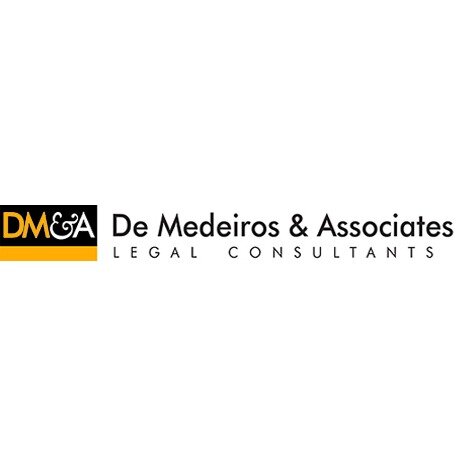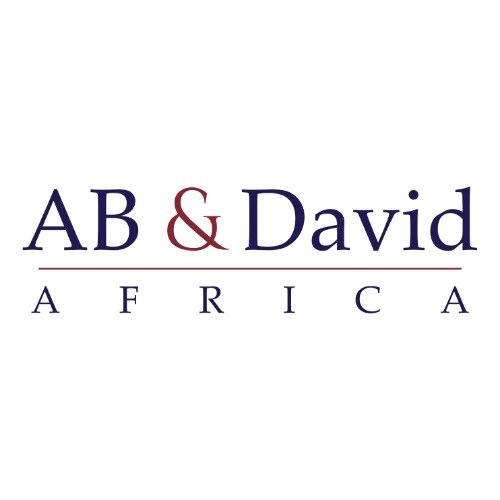Best Employment & Labor Lawyers in Ghana
Share your needs with us, get contacted by law firms.
Free. Takes 2 min.
Or refine your search by selecting a city:
List of the best lawyers in Ghana
About Employment & Labor Law in Ghana
Employment and labor law in Ghana is governed by a combination of statutory provisions, common law principles, and international conventions. The main legislative framework is the Ghana Labour Act, 2003 (Act 651), which establishes the legal relationships between employers, employees, and unions. This Act sets out the rights and responsibilities of each party and regulates various aspects of the employment relationship, including contracts, wages, working conditions, and dispute resolution. Employment and labor law in Ghana seeks to ensure fair treatment in the workplace and provide mechanisms for addressing work-related grievances.
Why You May Need a Lawyer
There are several situations where one might require legal assistance in employment and labor matters in Ghana:
- Employment Contracts: Seeking legal advice when drafting or reviewing employment contracts can help ensure all terms are fair and compliant with the law.
- Wrongful Termination: If an employee believes they were unfairly dismissed, a lawyer can provide guidance on potential legal remedies.
- Workplace Discrimination or Harassment: Legal intervention may be necessary to address situations of discrimination or harassment in the workplace.
- Dispute Resolution: Lawyers can assist in resolving conflicts between employees and employers, including salary disputes, benefit entitlements, and working conditions.
- Union Matters: Legal guidance may be required during negotiations between unions and employers or when discussing union membership rights.
Local Laws Overview
Key aspects of employment and labor law in Ghana include:
- Employment Contract: The Labour Act mandates that employment contracts should be in writing and contain specific terms and conditions, such as job description, work hours, remuneration, and leave entitlements.
- Working Hours: Typical working hours are capped at forty hours per week. Overtime must be compensated according to regulations.
- Minimum Wage: The government periodically reviews and sets the minimum wage, ensuring a baseline standard of living for workers.
- Leave Entitlements: Employees are entitled to annual leave, sick leave, maternity leave, and other types of leave as prescribed by the Act.
- Health and Safety: Employers are required to ensure a safe and healthy working environment, complying with regulations to prevent workplace accidents and illnesses.
- Termination and Redundancy: The law outlines processes for lawful termination and redundancy, aiming to protect employees from unjust dismissals.
- Collective Bargaining: The Act supports the right to collective bargaining through trade unions, providing a platform for negotiating employment terms and conditions.
Frequently Asked Questions
What is the legal minimum wage in Ghana?
The legal minimum wage is set by the government and is periodically reviewed. It's essential to check the latest rate with relevant authorities.
Is it mandatory to have a written employment contract?
Yes, the Labour Act requires all employers to provide a written contract outlining the terms and conditions of employment.
What are the normal working hours in Ghana?
The standard working hours in Ghana are forty hours per week. Any hours worked beyond this must be compensated as overtime.
How is overtime compensation calculated?
Overtime compensation is typically calculated at one and a half times the normal hourly rate, though specifics can vary by industry and collective agreements.
What types of leave are employees entitled to?
Employees in Ghana are entitled to various types of leave, including annual leave, sick leave, maternity leave, and compassionate leave, as detailed in the Labour Act.
Can an employee be dismissed without notice?
An employer must provide notice or payment in lieu of notice, except in cases of serious misconduct that justify immediate dismissal.
What should I do if I experience workplace harassment?
Employees should report harassment to their HR department or a legal advisor to initiate appropriate actions based on company policy and legal provisions.
Are there laws protecting employees from discrimination?
Yes, the Labour Act and the Ghanaian Constitution prohibit discrimination based on race, gender, religion, disability, and other protected characteristics.
How can I join a trade union?
Employees can join a trade union by registering and paying any required fees. Unions provide support and representation for collective bargaining.
What is the role of the National Labour Commission?
The National Labour Commission facilitates the resolution of labor disputes and promotes harmonious labor relations within the framework of the law.
Additional Resources
Here are some resources and organizations that could be helpful:
- Ministry of Employment and Labour Relations: Oversees labor policies and initiatives in Ghana.
- National Labour Commission (NLC): Manages and resolves labor disputes and ensures compliance with labor laws.
- Trade Unions: Professional associations such as the Trades Union Congress (TUC) offer guidance and representation to workers.
- Legal Aid Scheme: Provides legal support to individuals who cannot afford professional representation.
Next Steps
If you require legal assistance in employment and labor issues, consider the following steps:
- Consultation: Seek an initial consultation with a labor lawyer to discuss your situation and understand your options.
- Gather Documentation: Collect all relevant documents related to your employment issue, such as contracts, correspondence, and performance reviews.
- Research: Familiarize yourself with basic labor laws and rights to better navigate your legal journey.
- Union Involvement: If applicable, involve your trade union for support and representation.
- Legal Representation: Engage a qualified labor lawyer who can provide tailored advice and representation based on your specific circumstances.
Lawzana helps you find the best lawyers and law firms in Ghana through a curated and pre-screened list of qualified legal professionals. Our platform offers rankings and detailed profiles of attorneys and law firms, allowing you to compare based on practice areas, including Employment & Labor, experience, and client feedback.
Each profile includes a description of the firm's areas of practice, client reviews, team members and partners, year of establishment, spoken languages, office locations, contact information, social media presence, and any published articles or resources. Most firms on our platform speak English and are experienced in both local and international legal matters.
Get a quote from top-rated law firms in Ghana — quickly, securely, and without unnecessary hassle.
Disclaimer:
The information provided on this page is for general informational purposes only and does not constitute legal advice. While we strive to ensure the accuracy and relevance of the content, legal information may change over time, and interpretations of the law can vary. You should always consult with a qualified legal professional for advice specific to your situation.
We disclaim all liability for actions taken or not taken based on the content of this page. If you believe any information is incorrect or outdated, please contact us, and we will review and update it where appropriate.
Browse employment & labor law firms by service in Ghana
Ghana Attorneys in related practice areas.
Browse employment & labor law firms by city in Ghana
Refine your search by selecting a city.

















